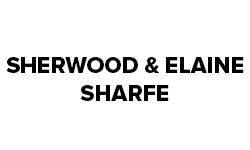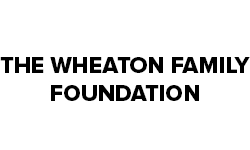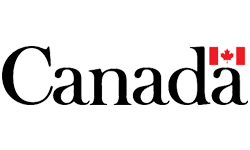CITIZENSHIP STUDIES 20-LEVEL: ENGAGED CITIZENS
Part A
Broad Area of Citizenship: Social Studies/History/Native Studies
Engaged Citizens question, critically examine, advocate, and defend rights and responsibilities of democracy on a local, national, and global level. They strive to understand the impact of ideology on issues and actions connected with diversity, rights and responsibilities, and various levels of governance.
High school students analyze and explore the concept of ideology:
- by investigating a range of ideologies and their application and impact on citizenship at the national level (10);
- by evaluating the impacts of ideology, historically and contemporary, at international levels (20); and,
- by examining, analyzing, and de-constructing the concept of ideology as a tool for understanding how it impacts Canadian (30):
- beliefs and actions, nationally and globally; and,
- participation as a citizens from a national and global perspective.
Overview and Desired Results of Citizenship Study
Students recognize the role that ideology plays in our perspectives and the application of Human Rights. Students extend their investigations to consider historically how worldview has impacted and continues to impact perspectives of citizenship and the balance between meeting the needs of citizens and promoting the nation’s best interests. Through the investigation of worldview and the impact of worldview on an individuals’ and society’s beliefs, students specifically consider the influence of imperialism and colonialism on populations especially Indigenous peoples.
20
- Social Studies students will consider how ideology influences our perspectives toward the application of Human Rights.
- History students will consider how historical events of the 20th century influence our perspectives of and about citizenship.
- Native Studies students will consider how imperialism and colonization have affected historical and contemporary Indigenous populations.
Enduring Understandings of Citizenship Study
Students will use this information to understand that:
- Injustices of today have roots in the past.
- Canadian society is challenged to manage the co-existence of diverse worldviews.
- Canadian citizens work to achieve a balance between rights and responsibilities through learning and action.
- Canadian society has inequities and elimination of these is beneficial for all Canadians.
- For each individual, becoming aware of racism in Canadian society is an evolutionary process and a precursor to change.
- As citizens of local, national, and global communities, Canadians are conscious, self-reflective, and critical of their own beliefs and actions and seek to make positive change.
- Citizens show flexibility of mind.
- Enduring understandings and questions stimulate thinking, guide the inquiry and are linked to outcomes.
- These questions point to the “big ideas’ in the area of inquiry and should be considered and reconsidered as the inquiry progresses.
- Answers to these understandings form the evidence of learning at the end of study.
Knowledge and Skill Development
Students will know:
- The definition of ideology and its role in society.
- Characteristics and assumptions of ideologies along the ideological spectrum.
- Historical and contemporary ideological issues.
- The role of worldview in ideologies.
- The rights and responsibilities of Canadian and Global citizens.
Students will practice the skills of dialectical thinking and:
- Make inferences about ideologies based on responses to a variety of issues.
- Identify ideological assumptions.
- Examine multiple perspectives.
Essential Questions
- In what ways is ideology useful in guiding human beliefs and behaviour?
- What are the limitations of ideology in guiding beliefs and behaviour?
- How does ideology influence our view of social justice?
- How does a society structure itself to find a balance between the responsibilities of citizens to society and society’s responsibilities to its citizens, and what factors influence the finding of this balance?
- Has Canadian society been organized to reflect our national values and beliefs?
Essential Questions are open-ended questions that are continually revisited, encompass concepts that students will explore throughout the unit of study, form the evidence of understanding and frame the assessment at the end of the study.
Saskatchewan Curriculum Concepts
This section connects teachers and students to the concepts explored through Social Sciences Studies: Social Studies, History, and Native Studies. General outcomes/objectives are identified. It is the opinion of the development committee that the outcomes incorporate the three perspectives of Social Sciences through exploration of historical and contemporary issues, which in Canada’s case must include Indigenous perspectives. Teachers may choose, however, to explore these outcomes/citizenship considerations specifically through the lens of their respective social science areas.
The order in which they are listed suggests a general idea of the learning plan to follow.
Students will:
- Continue to examine how ideology and worldview affect action.
- Understand that human rights are those rights which people in society collectively have decided they will honour because people are morally entitled to them and that societies vary in their understanding and application of human rights and responsibilities.
- Consider which obligations and responsibilities individuals, and groups, should collectively assume for each other’s human rights.
- Examine how imperialism and colonization have affected the application of human rights.
- Explore the interconnections between social, economic, political and cultural systems in order to understand how change in one affects the others.
- Examine how the relationship between collective and individual rights varies according to the political system of the society.
- Examine how groups seek to have control over the decision-making processes which have an impact on their cultural distinctiveness and well-being.
- Consider how a society structures itself to find a balance between domestic considerations and international and/or colonial considerations; and,
- Understand that individual welfare is the feeling that one’s personal potential is being developed so that a fulfilling and satisfying life is possible.
Throughout these inquiries students are encouraged to practice the principles of dialectical thinking and work to consider multiple perspectives in their decision-making processes.
© 2023 Concentus Citizenship Education Foundation Inc. All Rights Reserved.









